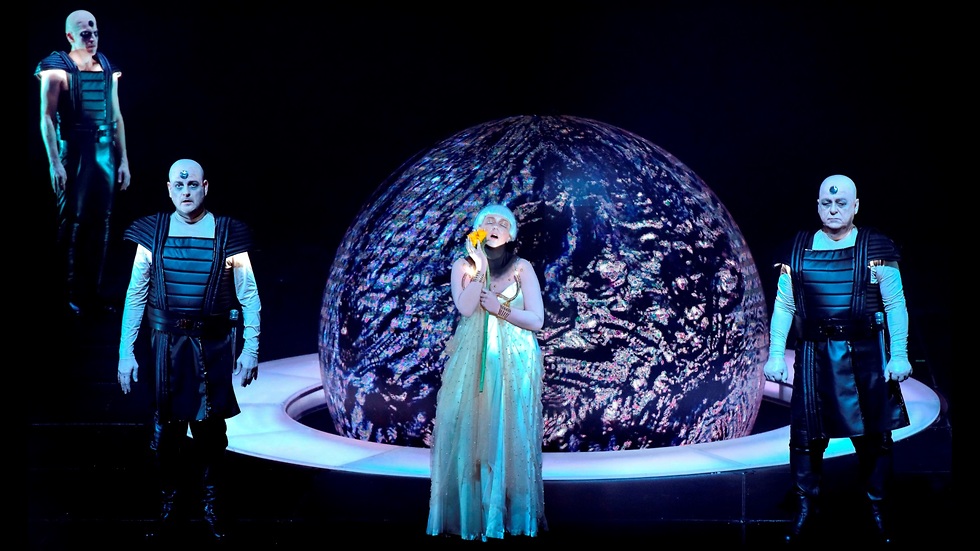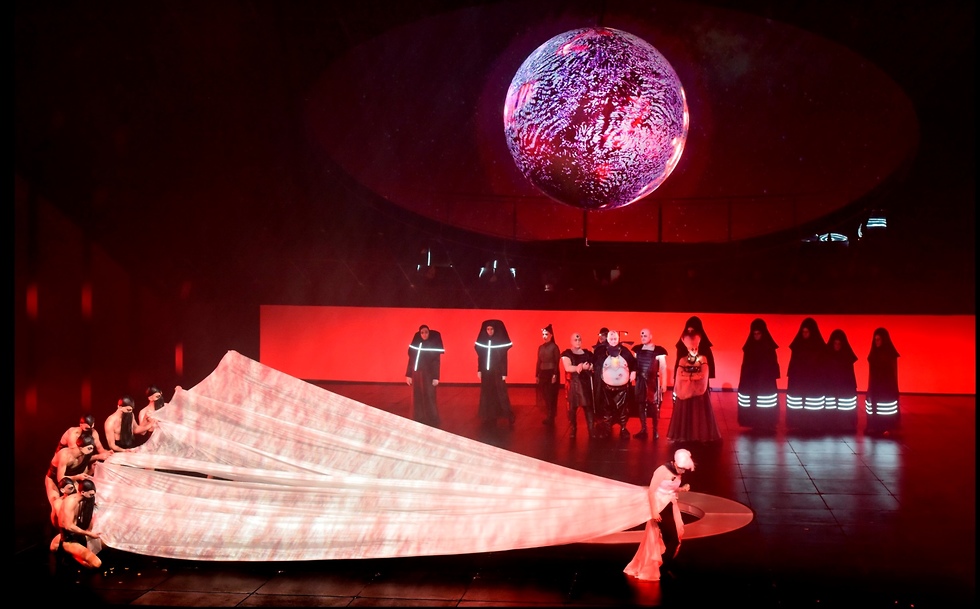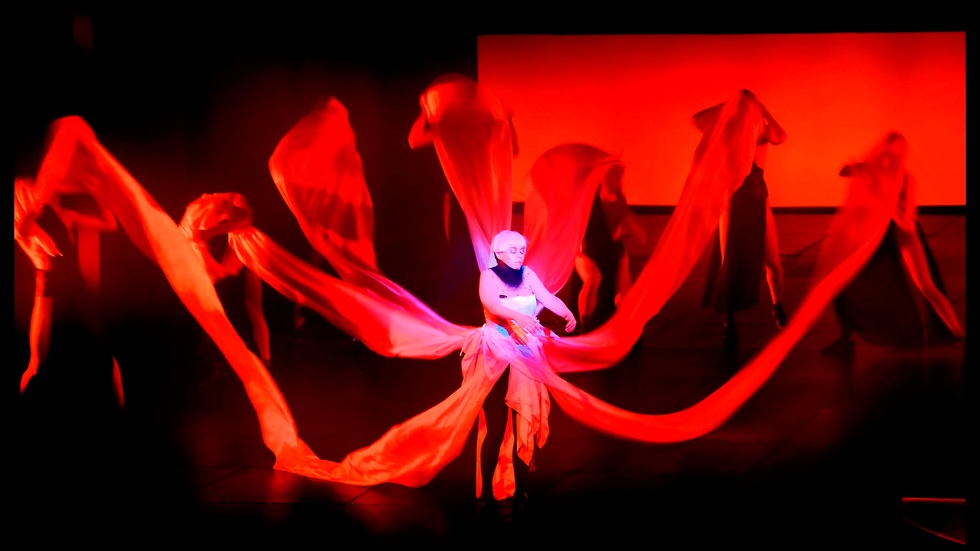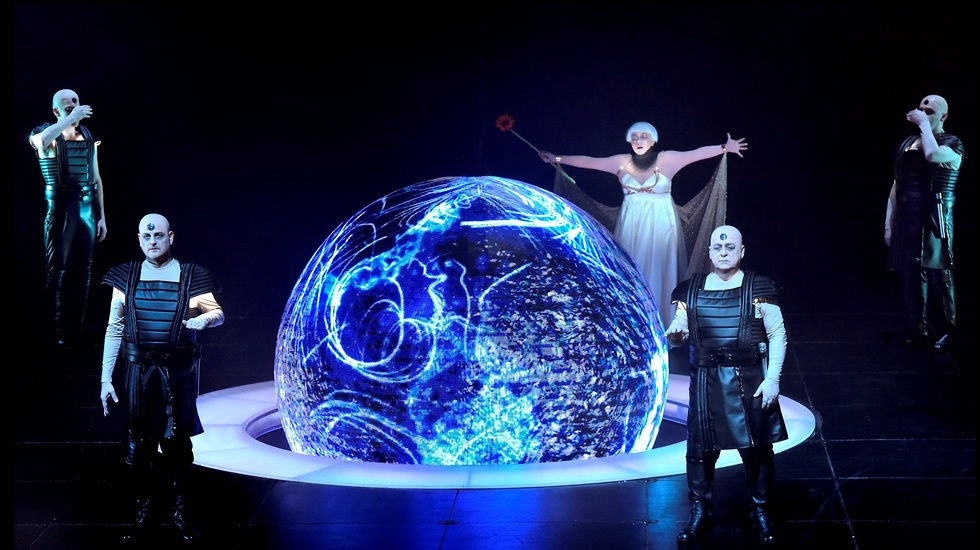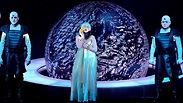
The Israel Opera is currently performing the one-act opera Salome, by the 20th-century German composer Richard Strauss (not be confused with Johann Strauss II, the “Waltz King”) for the first time in 10 years; in fact, it has been performed in Tel Aviv every 10 years since 1998.
To mark this once-in-a-decade event, the current production was specially commissioned, and renowned Israeli actor-director Itay Tiran recruited to direct. Together with a talented team of set, costume and lighting designers, Tiran has created a production that is not only avant-garde—set on a different planet—it is nothing less than spellbinding.
The world of Salome according to Tiran is a dark and foreboding place, whose minions are clad in black alien costumes. An amazing giant orb, illuminated brilliantly by ever-changing colorful strobe lights, evokes shifting changes of mood.
The libretto of the opera was written by the composer himself, based on the German translation of the French play Salome, by Oscar Wilde. It is full of familiar Biblical references, from the Book of Esther—the Tetrarch’s promise to pay “up to half my kingdom”—and the Song of Songs, describing myriad handsome physical attributes.
The playwright’s several references to “squabbling Jews” is as relevant today as it was in the days of the Second Temple. Moreover, they take on an especially interesting, wry dimension when uttered by the extraterrestrial beings, as if they are observing a completely unfathomable species.
This production was the occasion to introduce some shining new talents making their debuts before Israeli audiences: Swedish soprano Elizabet Strid in the role of Salome (alternating with Israeli soprano Merav Barnea); Australian bass-baritone Daniel Sumegi and Australian baritone Sebastian Holocek, alternating in the role of Jochanaan; and American tenor Chris Merritt and Australian tenor Hubert Francis, alternating in the role of Herod.
Salome also marks the return to the conductor’s podium of Dan Ettinger, the musical director of the Israel Opera and its resident orchestra, the Israel Symphony Orchestra Rishon LeZion. It has been years since Ettinger himself, who is also music director of the Stuttgart Philharmonic Orchestra, has personally wielded the baton with the Israel Opera Orchestra.
Choreography plays an important role in this production, since the opera is punctuated by long instrumental interludes. Israeli choreographer Renana Raz, doing her first work with the Israel Opera, has the good fortune to be able to work with a lithe group of slender mail dancers, whom she uses in the most creative and unexpected ways. For example, Salome’s famous “dance of the seven veils” in this production is neither sexy nor erotic; while this is in a sense disappointing, the casting of seven auxiliary dancers -- each in charge of one veil -- is nonetheless riveting.
Since the whole performance lasts only 100 minutes, going into more detail here runs the risk of revealing spoilers. This is a Salome worth seeing; it runs through January 24.















